National Geographic: Speaking up for Elephants: Reflections on Vermont’s Ivory Sales Ban Hearing

 Posted by Laurel Neme in A Voice for Elephants on April 17, 2015
Posted by Laurel Neme in A Voice for Elephants on April 17, 2015
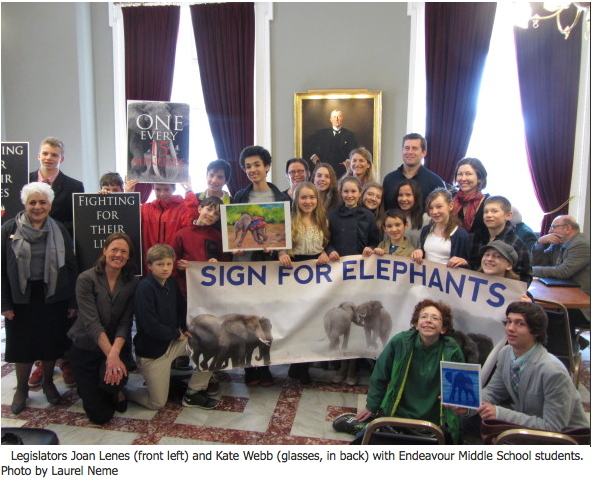

“In a world where everything feels like it is moving at the speed of light, slowing down and watching an elephant in its natural habitat is calming and shows us the importance of paying attention to the natural world."
That opinion came from 12-year-old Taegen Yardley, a sixth grader at Endeavour Middle School in Shelburne, Vermont, on April 8 when she testified before Vermont’s House Committee on Fish, Wildlife and Water Resources in support of a proposed state ban on ivory and rhino horn sales (H.297). Twenty of her classmates filled the ornate room to listen and show support.
See related article, on “Citizens Spur States to Ban Trade in Ivory and Rhino Horn.”
As I gazed around the room, I could almost see her words lift and empower both the legislators and the public audience.
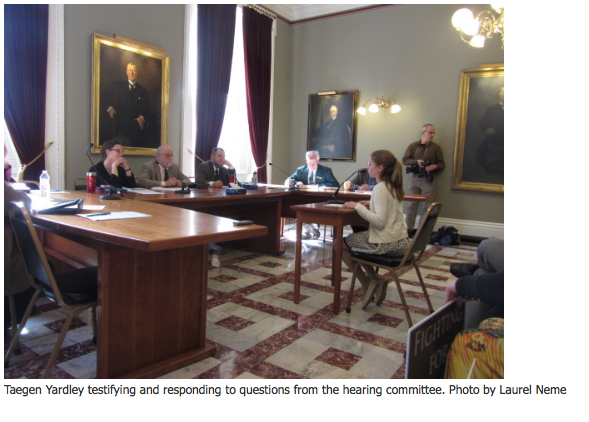
“I will never be able to see an African Western Black Rhino,” she said. “They officially became extinct in 2011. I don’t ever want to be able to say the same about elephants.”
Members of the committee nodded in agreement.
What World Will We Leave Our Children?
As much as the hearing was about H.297, it was also about the world we’re going to leave our children. And it was about speaking up when you care about an issue.
That day, Jon Fishman, drummer for the rock band Phish, became the first well-known musician to testify at a state hearing to restrict ivory sales. He did so in part at the urging of his children, who go to school with Yardley and share her passion, and in part to set an example for them.
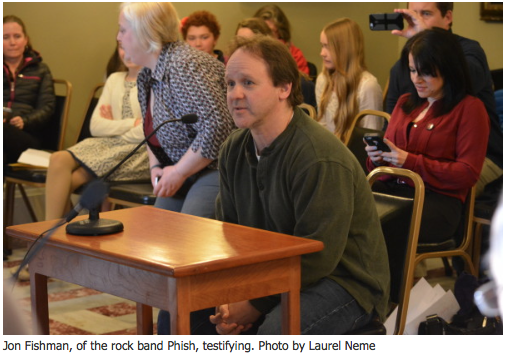
Phish members have generally steered clear of political and social activism at their concerts, but the Vermont committee room was an appropriate place to use his status as a celebrity.
With no notes or prepared statement, Fishman addressed the concern opponents have voiced that a ban on ivory sales would inconvenience traveling musicians. “I can’t imagine that there’s a piano player out there that, given the choice between extinction of elephants from this Earth and their ability to have ivory on their piano keys, would adhere to insisting that they have ivory on their piano keys.”
The Vermont bill was spearheaded by Ashley McAvey, a mother of two young children who, in her minimal spare time, educated and lobbied legislators about the need for a state ban.
Celebrating Ivory and Rhino Horn Perpetuates Problem
For McAvey, it started when her Yale alumni magazine showcased a rhino horn libation cup at the Peabody Museum. “I thought there was going to be a caption saying rhinos are terribly endangered, but there was nothing,” she explained.
So she wrote a letter to the editor saying, “I do not see art; I do not see a generous gift to the university. I see the true genocide that is taking place in present time against this
planet’s most beautiful and majestic creatures. …The ignorance and greed that led to the destruction of the two rhinos that were originally attached to the featured cups is still very much alive today. Far from outwardly condemning the slaughter that took place, however long ago, the piece seems to celebrate the ‘art’—something I find highly distasteful. Perhaps the university should enact a stronger policy about what it accepts and take a firmer stand on understanding the murderous routes a gift has taken to find its home at Yale.”
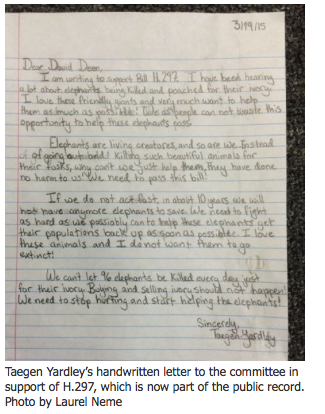
The museum director responded, saying, “The intricately carved Chinese rhino horn cups illustrated [in the magazine] are centuries old and were donated to the museum over 80 years ago.”
In McAvey’s view, that response was emblematic of the problem. The continued celebration of ivory and rhino horn perpetuated demand…and poaching.
Her kids motivated her to take action. “I want them to know that when they see a need for change, they can make the world a better place.”
When a person speaks out, they influence those around them.
“Elephants are very smart creatures—they care about everybody and everything,” said Yardley when asked by legislators what we can learn from these threatened mammals. “Now that people are becoming threats to them, it’s harder for them to be friends with humans.”
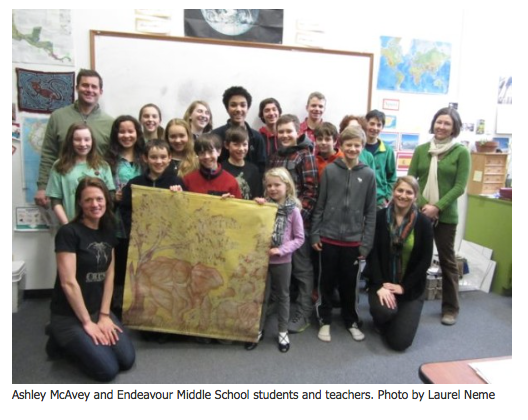
Because of McAvey and Yardley, Endeavour Middle School director Andrew Everett is now passionate about elephants. “I look at what they’re doing,” he said, “and it makes me think about other areas of my life, aside from elephants, where my actions could have an impact.”
I too am learning from the example set by Yardley, Fishman and McAvey. They’ve shown me that big or small, famous or not, everybody can be a voice for change.
Dr. Laurel Neme is the author of ANIMAL INVESTIGATORS and ORANGUTAN HOUDINI. Follow her on Twitter @LaurelNeme.
